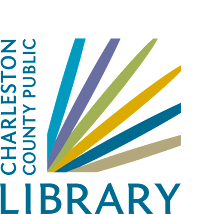- The novels of Somerset Maugham, Graham Greene, Ian Fleming, and John Le Carré, especially Le Carré's Tinker, Tailor, Soldier, Spy, which is based on the events that exposed the Cambridge Five traitors.
- The nonfiction books A Covert Affair: Julia Child and Paul Child in the OSS by Jennet Conant; Perjury: The Hiss–Chambers Case by Allen Weinstein; and Agent Zigzag: A True Story of Nazi Espionage, Love, and Betrayal, Double Cross: The True Story of the D-Day Spies, and Operation Mincemeat: How a Dead Man and a Bizarre Plan Fooled the Nazis and Assured an Allied Victory by Ben Macintyre.
- The James Bond movies; the movie version of Tinker, Tailor, Soldier, Spy; the movie The Imitation Game; the television series The Bletchley Circle; and the television series MI-5.
Thursday, August 20, 2015
Readalikes: If you enjoyed August's selection . . .
If you enjoyed A Spy Among Friends: Kim Philby and the Great Betrayal by Ben Macintyre, then you might also like these books and films suggested by our discussion group members:
You might also want to visit the International Spy Museum in Washington, D.C., which features the largest collection of international espionage artifacts ever placed on public display. You can learn more at www.spymuseum.org.
Monday, August 3, 2015
August Not Fiction Book Discussions
 What stories do we tell about ourselves? What stories do we want to believe about others? And how do these stories affect and even form the foundation of our relationships with others? A Spy Among Friends: Kim Philby and the Great Betrayal by Ben Macintyre addresses these questions with one of the most famous spy stories of all time, told "through the prism of personal friendship."
What stories do we tell about ourselves? What stories do we want to believe about others? And how do these stories affect and even form the foundation of our relationships with others? A Spy Among Friends: Kim Philby and the Great Betrayal by Ben Macintyre addresses these questions with one of the most famous spy stories of all time, told "through the prism of personal friendship."Kim Philby, a British citizen, rose to the upper levels of Britain's counterintelligence against the Soviet Union during the Cold War. For decades, no one detected that he was also a Soviet spy. His deception was made possible by his talent for cultivating friendships within the British and American intelligence agencies. The most important of these friends were Nicholas Elliott, also an agent in MI6, and James Jesus Angleton, head of counterintelligence for the CIA. Because Philby and Elliott were of the same social class, had gone to the same schools, belonged to the same clubs, Elliott was unable to see past his own preconceptions to the fact of Philby's betrayal. Angleton had also gone to public school in Britain, and Philby exemplified for him certain British qualities and values he admired. Over drinks and dinners through the years, Elliott and Angleton passed on information to Philby that allowed him to effectively shut down British and American counterintelligence in the Soviet Union and resulted in the deaths of hundreds of operatives and their families.
Some readers will already be familiar with these events from John Le Carré's novel Tinker Tailor Soldier Spy, which is based on the event that exposed the Cambridge Five traitors, Kim Philby, Donald Maclean, Guy Burgess, Anthony Blunt, and John Cairncross, as KGB moles in the British intelligence service. In an interview with Kirkus Reviews, Macintyre says, "I don't think it's an accident that some of the greatest novelists have been spies--Somerset Maugham, Graham Greene, Ian Fleming, or John Le Carré. In some ways, what spies do is a form of fiction. They create an alternative reality and try to lure people into it. Philby in some ways was a kind of frustrated novelist, and a man of great theater. Never was a man more acutely aware of his role in his own drama."
What do you think? Why did Kim Philby betray his country and the people closest to him? Was it a matter of ideology and personal conviction? Or was it, as Macintyre suggests, that Philby was "addicted to infidelity"? If not, what do you believe motivated him? What kind of personality does it take to be a spy? And how was he able to deceive Elliott and Angleton, two of the most experienced spies in the world as well as his two closest friends? What role did assumptions about social class, education, and profession play in the success of his deception?
We hope you will join the discussion: Tuesday, August 4, at 6:30 p.m. at Main Library; Thursday, August 20, at 11:00 a.m. at West Ashley Branch Library; and here on the blog.
Subscribe to:
Posts (Atom)
